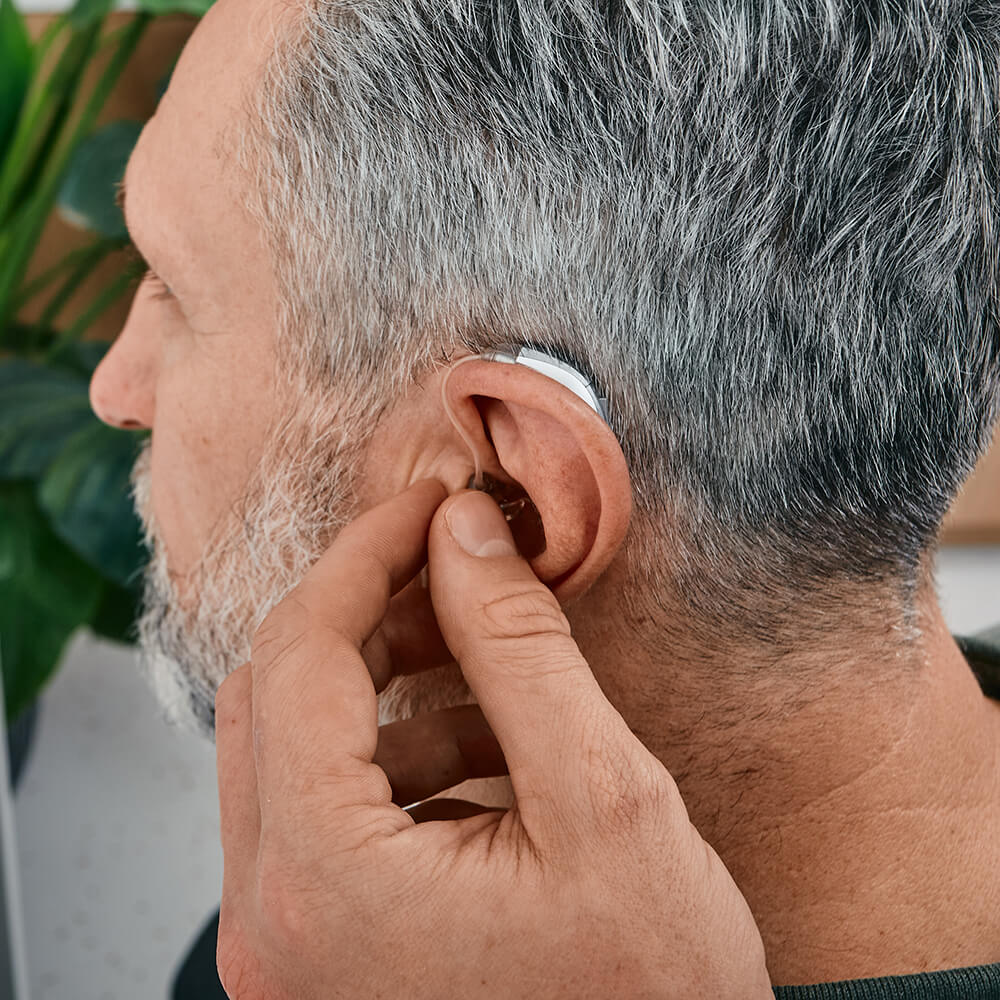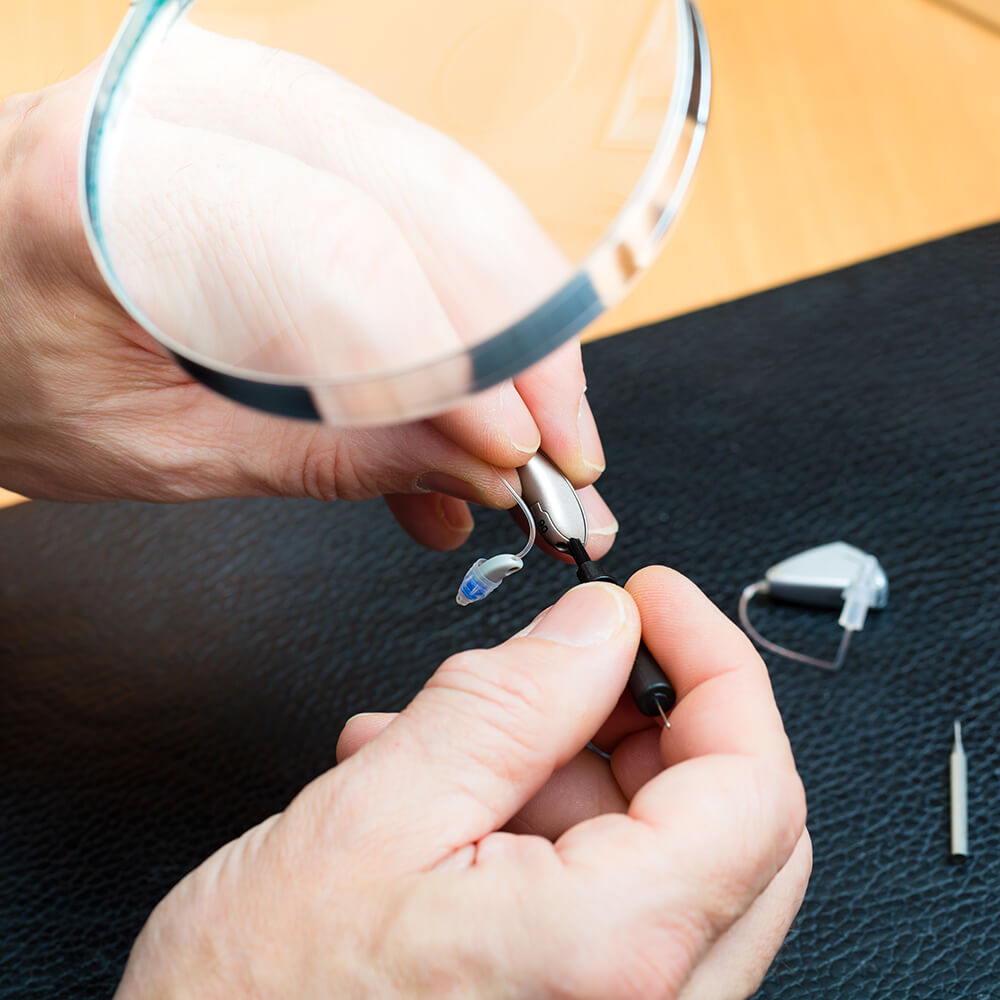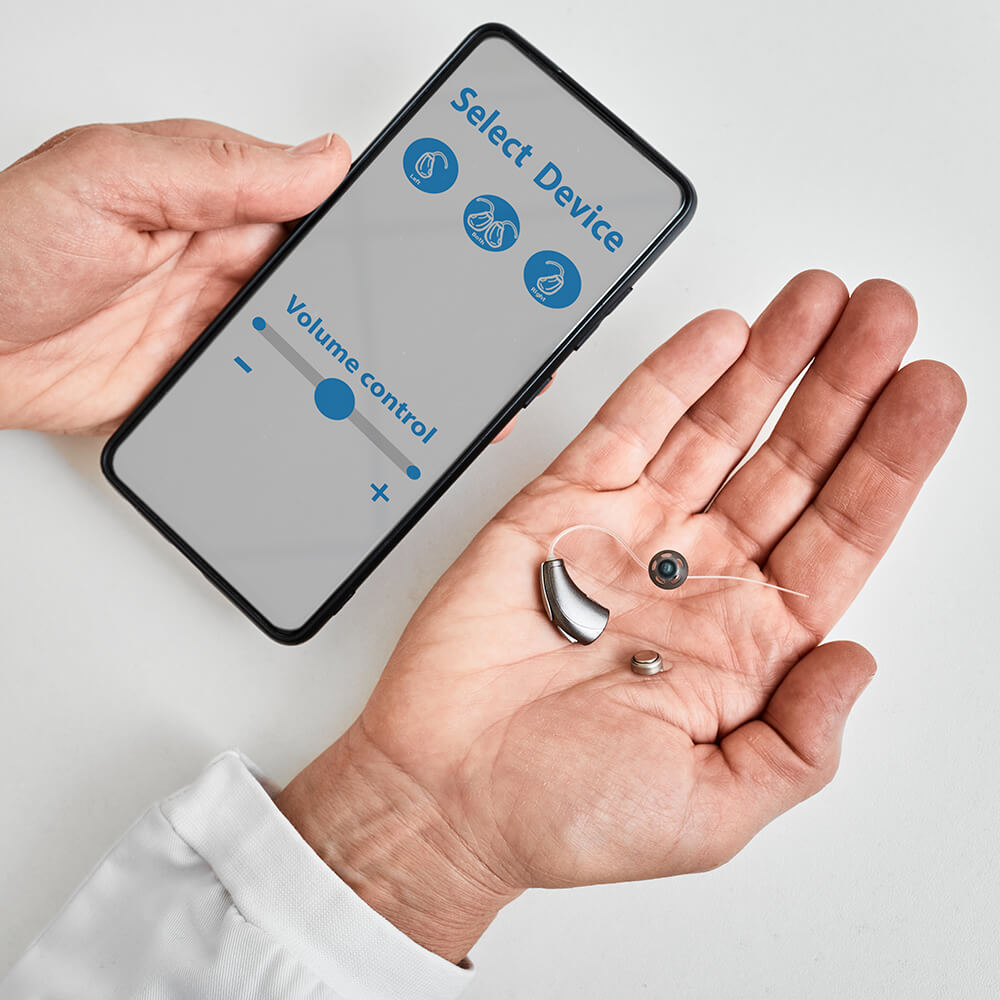Services

Digital Hearing Lab is dedicated to helping our patients stay active and engaged.
Hearing loss is an ongoing and life-changing experience.
For people who are new to hearing aids, the experience of hearing again may require a period of adjustment. Our team can make adjustments, discuss your listening experience, and help you ease into binaural hearing. We support you in every way, from caring for your hearing aids to training yourself to discern between sounds.
We also offer assistive listening devices for particular difficulties, such as listening to performances in a live venue to hearing your pastor at church. At Digital Hearing Lab, we pride ourselves on our diverse hearing health services to meet you wherever you are on your journey.

Hearing Tests
Through a series of comprehensive tests, we’ll evaluate your hearing to determine whether or not you have hearing loss, the likely causes, the degree and type of hearing loss, and whether the loss exists in one or both ears. If testing reveals that you do have hearing loss, we offer a wide range of solutions. We do not believe that one size fits all!
For veteran hearing aid users, if you notice changes in your listening experience, an updated hearing test can also be beneficial. Your hearing abilities may have changed, or it could be that your hearing aids need a simple adjustment. Call us today for a consultation!

Hearing Aid Fittings

Hearing Aid Repair

Assistive Listening Devices

Tinnitus
Temporary and chronic tinnitus alike can be frustrating and could affect your overall health and well-being. Tinnitus can lead to sleep deprivation, increased stress and anxiety, and speech/memory problems. Our team at Digital Hearing Lab can help you find solutions to manage tinnitus.
We will perform a careful review of your health history along with audiometric testing to determine if hearing loss is present. Many tinnitus cases are linked to hearing loss, and we can help identify the proper tinnitus treatment, whether the solution is hearing aids, sound therapy, or more.

Custom Hearing Protection
Noise-induced hearing loss, a type of sensorineural hearing loss, occurs when one has been exposed to dangerous noise levels over time. This exposure to hazardous noise levels could be due to one’s hobbies (live music/sporting events, hunting, etc.) or due to one’s occupation. Custom hearing protection is recommended for those in professional or leisure settings that may harm one’s hearing.
At Digital Hearing Lab, we provide custom hearing protection molded to fit your ear canals. A personalized fit offers better protection against dangerous decibels. Our options include hunter’s earplugs, musicians’ earplugs, swim plugs, and more! Contact us today to learn more about custom hearing protection.

Cerumen Management
It serves to protect the ear from dust, dirt, and bacteria, and also helps to lubricate and clean the ear canal. However, in some cases, cerumen can build up and cause discomfort or even impair hearing. Therefore, cerumen management is important to maintain ear health.
It is important to note that while cerumen management is necessary in some cases, it is also possible to over-clean the ear and remove too much cerumen, which can cause irritation and dryness. Therefore, it is best to follow the advice of a healthcare provider when it comes to managing cerumen. At Digital Hearing Lab, we provide cerumen management services to remove excess cerumen from the ear canal and will always recommend the right type and level of service for your individual needs.
